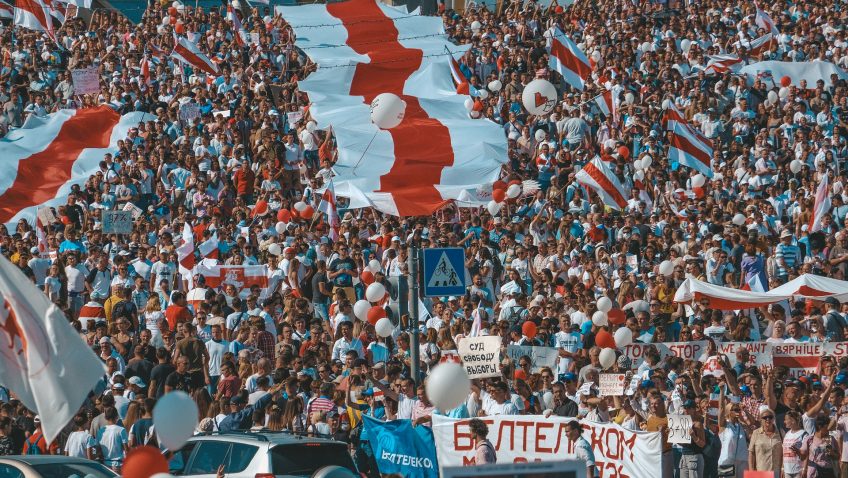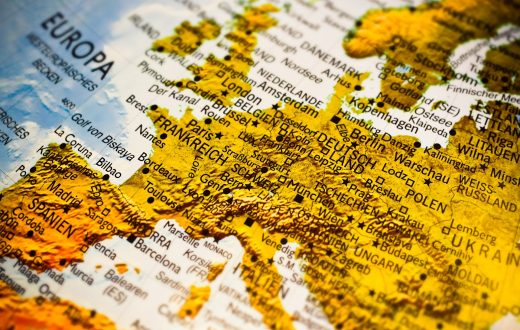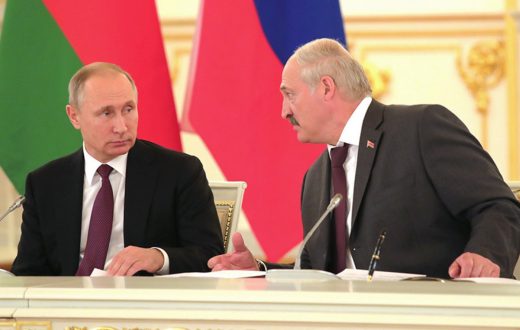Protests have engulfed Belarus since the dispute election. There have been calls for Alexander Lukashenko to resign. He is referred to as “Europe’s Last Dictator” and has been the only President Belarus has ever known. He has really shaped Belarus is his image. Which begs a serious question: When Lukashenko leaves, either resigning or by death, what happens to Belarus?
To understand the complexity of this question, you have to understand Belarus. Throughout most of history, there never was an entity known as Belarus. Belarus was formed as a result of back and forth conflicts between Russia and Poland. Through the back and forth, a new language and identity emerged; although heavily influenced by Russia, it wasn’t quite Russian. So it was nicknamed White Russia, or at it is in Russia, Byelorussia, or, Belarus.
In the aftermath of the fall of the tsar, Belarus, like so many other regions of the Russian Empire, declared independence. However, the White Ruthenian Republic, as it was called, did not last long, and was quickly conquered by the Red Army. In the Treaty of Riga, which ended the Polish-Soviet War, it was partitioned between Poland and what would eventually become the Soviet Union, who established the Belarussian Soviet Socialist Republic.
This lasted under the signing of the Belovezha Accords, signed between the Soviet Republic states of Russia, Ukraine, and Belarus. This formally dissolved the Soviet Union, made official with the resignation of Mikhail Gorbechav on December 25, 1991. Following this, Belarus had a parliamentary system, with Prime Ministers Stanislau Shushkevich, Vyacheslav Kuznetov, and Myechyslaw Hryb. Follwing this, a new constitution was established in 1994, transforming Belarus into a Presidential system. Alexander Lukashenko won the election, and has been in power ever since.
Lukashenko’s time in office has turned Belarus into a “mini-Russia”, a European version of North Korea, where the Soviet Union never ended. Many industries are nationalized, the hammer and sickle is on state symbols, there is a state police force called the KGB, and the borders are, by and large, sealed shut to the outside world.
All the meanwhile, the “mini-Russia” has certainly been put into effect. The Russian language was the official language, instead of the native Belarussian language. Belarus joked that the purpose of Belarus was to be the fortress of which to protect Russia from a NATO invasion (as well as a homosexual invasion) and jokes that Russia will re-annex Belarus are commonplace with both Belarus and Russia, as well as the international community at large.
This, however, began to change following Russia’s decision to place en emargo on milk being sent to Belarus in response to Belarus refusing to recognize Abkhazia and South Ossetia as independent nations following the Russo-Georgian War, in what was dubbed as the “Milk War.” Later, Lukashenko tried to distance himself from Russia; more and more people began to speak the Belarussian language, and, rather than be a fortress for Russia, Belarus was instead place as a buffer between Russia and the West; a shift to seeing both as a potential threat. But make no mistake, Belarus was still a Russian ally, with Lukashenko turning to Putin more than any other world leader.
In spite of this, rather than define the Belarusian identity through the Belarusian language, Belarusian customs, Belarusian music, etc., the Belarusian identity was centered around an Alexander Lukashenko personality cult. Lukashenko is Belarus and Belarus is Lukashenko, or, an incredibly less barbaric version of the Congo Free State.
This, of course, brings about the central question of this article: What happens to Belarus once Lukashenko is gone? Will Belarus cease to exist?
Belarus will certainly not be the same once Lukashenko is no longer in power. But Belarus will not cease to exist. It will continue. And become less Russian and more Belarussian in the process.




